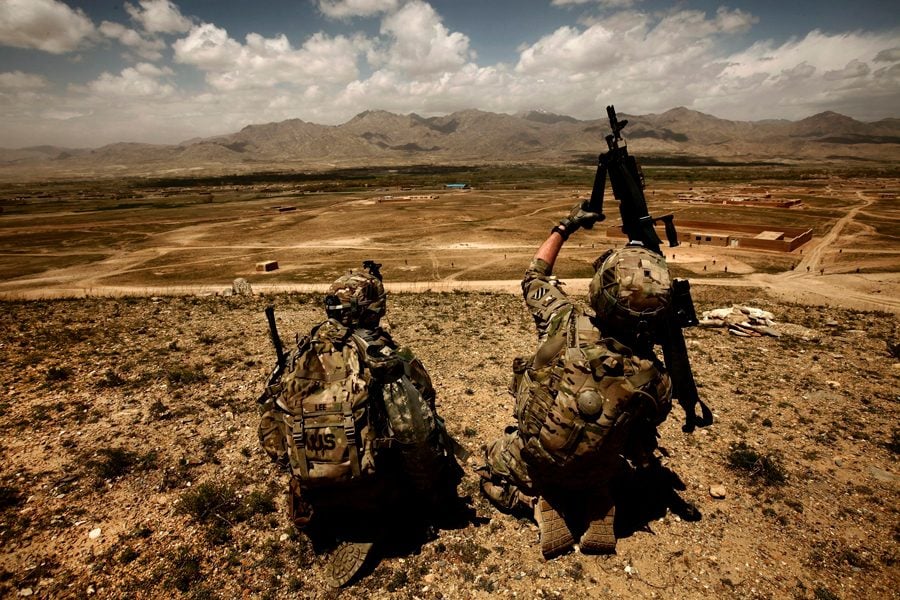Well into the second decade of the Iraq and Afghanistan Wars, students, faculty question the country’s involvement
(Carolyn Cole/Los Angeles Times/MCT)
U.S. soldiers take part in an overwatch operation in support of Afghan soldiers in Wardak Province. As the wars approach two decades, some fear public attention is waning
October 21, 2018
Ahead of the November midterm elections, Daily reporters are speaking to students about issues they’ll take to the polls. In this article, students and faculty take on wars in Iraq and Afghanistan.
2018 marks the 17th year of the Afghanistan War and the 15th year of the Iraq War. The conflicts have posted a combined death toll of just under 7,000 U.S. soldiers since 2001.
Under three different presidents, not much has changed, said political science Prof. Marina Henke. Over the past decade and a half, the U.S. has demonstrated an unwillingness to invest in Afghanistan and Iraq despite their economic and political interests in the region, she said.
“One could make an argument that if the United States really invested its all then you could maybe fix the situation, but this is completely hypothetical because the United States will never invest it all,” Henke said. “After all, Iraq and Afghanistan do not constitute real threats to national security.”
Elections in Afghanistan this weekend were disrupted by violence and technical glitches. President Trump has said conditions on the field will determine whether the U.S. pulls out, not a predetermined timeline. All signs show the war today is not what was planned.
Weinberg freshman Albert Ko said the longstanding intervention in both Iraq and Afghanistan is “disheartening.” Washington, he added, should work to end these conflicts.
“It’s kind of been on the backburner for a while so if they want to conclude it they should focus all their resources on it,” Ko said.
Henke noted both wars are often associated with the “War on Terror.” However, she emphasized that these conflicts are fundamentally different.
The war in Afghanistan began on October 7, 2001, one month after the September 11 attacks. The Bush administration said the war was aimed to defeat al-Qaeda and the Taliban and rebuild the Afghan government alongside international groups like NATO. Henke said the war was a direct result of the 9/11 attacks.
“Afghanistan was a reaction to 9/11,” Henke said “To a certain degree it was in my mind an overreaction. (Afghanistan’s) role was absolutely minimal with regards to the actual planning of 9/11.”
The Iraq War began under much different pretenses, Henke said. The Bush administration originally claimed Saddam Hussein was housing “weapons of mass destruction,” but this turned out to be false.
Henke said Iraq was in more disarray than Afghanistan because there was no formal plan to rebuild Iraq after toppling the government.
“Once Saddam was decapitated, once he was gone, all of sudden there was no plan,” Henke said. ”What should we do with this country? This is how all these mistakes were made and you know they’re still suffering from these mistakes today.”
As the wars approach their two decade marks, some fear public attention is waning. Weinberg freshman Ravi Chepuri said he is shocked the conflict has lasted so long, yet the public and the media are less interested as it goes on.
“I definitely feel like there is less coverage,” Chepuri said. “I wouldn’t be surprised if people didn’t know that those wars were even still going on.”
Email: austinbenavides2022@u.northwestern.edu
Twitter: @deathstarpoetry



